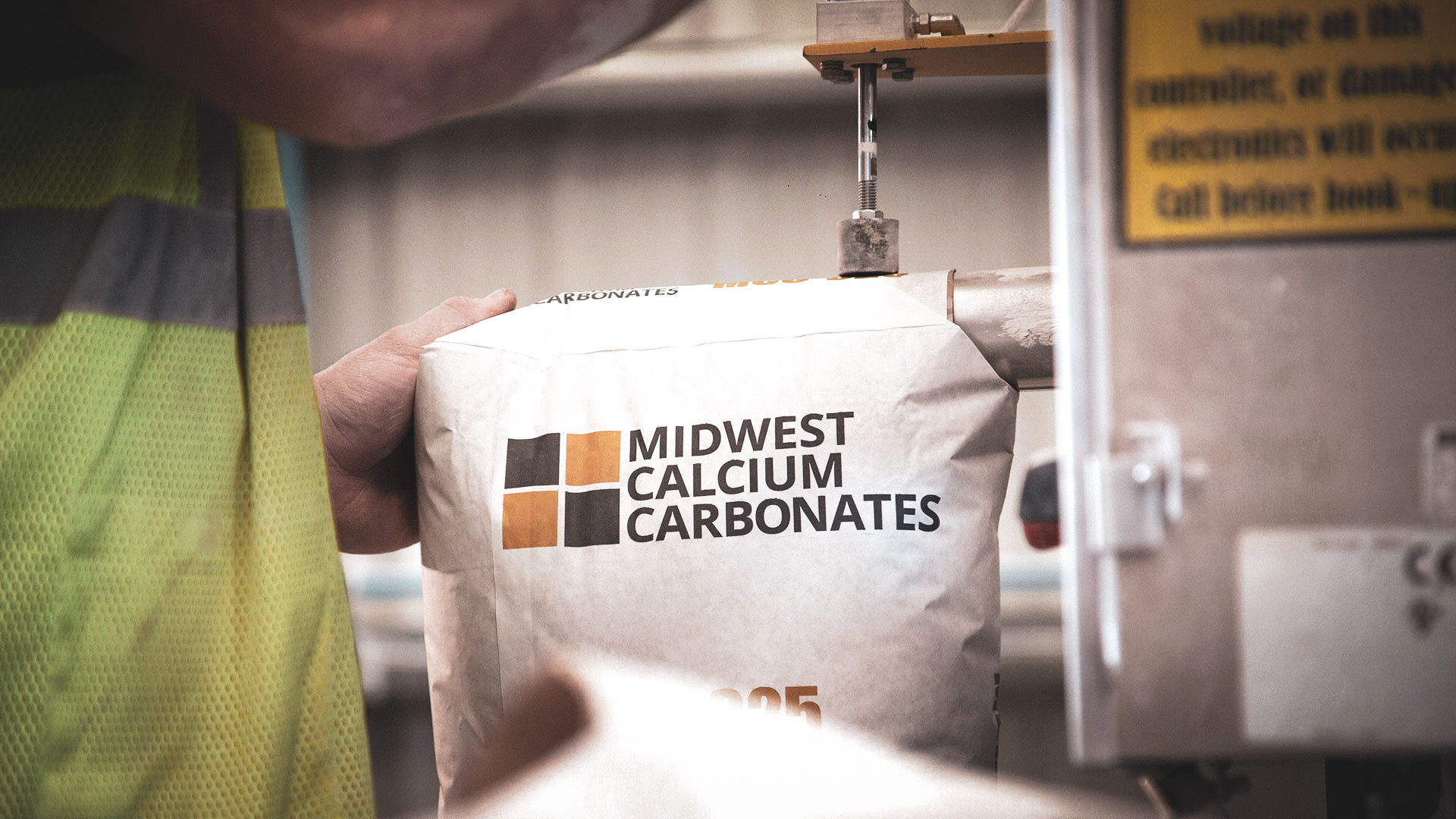A Variety of Industrial Minerals For Specialized Industries

Midwest Calcium Carbonate (MCC)
Fine-Grind Bulk & Packaged Products

Portland Fine Grind
Fine-Grind Bulk & Packaged Products
Low chemical variability, uniform particle sizing.
Six Sigma and Lean principles drive the performance of our operations and the production of our products. Our customers depend on our team to produce consistent, predictable products. As the material is crushed, dried, and screened to the specified size, samples are taken at each phase of the process to ensure material meets desired physical and chemical specifications. Once the material passes our rigorous quality testing, it is ready to be shipped to the customer.
Calcium Carbonates
Paper, Plastics, Paints, and Coatings: Calcium carbonate is the most widely used mineral in the paper, plastics, paints, and coatings industries, both as a filler – and due to its special white color – as a coating pigment. As an extender, calcium carbonate can represent as much as 30% by weight in paints. Calcium carbonate is also used widely as a filler in adhesives and sealants.
Personal Health and Food Production: Calcium carbonate is widely used as an effective dietary calcium supplement, antacid, phosphate binder, or base material for medicinal tablets. It also is found on many grocery store shelves in products such as baking powder, toothpaste, dry-mix dessert mixes, dough, and wine. Calcium carbonate is the active ingredient in agricultural lime and is used in animal feed. Calcium carbonate also benefits the environment through water and waste treatment.
Building Materials and Construction: Calcium carbonate is critical to the construction industry, both as a building material and as an ingredient of cement. It contributes to the making of mortar used in bonding bricks, concrete blocks, stones, roofing shingles, rubber compounds, and tiles. Calcium carbonate decomposes to form carbon dioxide and lime, an important material in making steel, glass, and paper. Because of its antacid properties, calcium carbonate is used in industrial settings to neutralize acidic conditions in both soil and water.
Magnesium Carbonates
Animal Feed Supplements and Industrial Applications: Magnesium carbonates are used as a source of magnesia (MgO), a feed additive for livestock, a sintering agent and flux in metal processing, and as an ingredient in the production of bricks and ceramics.
Glass: We pride ourselves on the quality and consistency of our long-term magnesium reserves, perfect for producing materials critically needed in the glass making process. Our material has low chemical variability, uniform particle size, and low decrepitation rates to maximize efficiencies in the glassmaking process. These characteristics contribute to fewer process adjustments while reducing both furnace fouling and energy costs.
GET IN TOUCH

6640 Intech Blvd, Suite 300
Indianapolis, IN 46278
Phone: (317) 434-4600
Fax: (317) 228-8341
Email: info@usagg.com



















